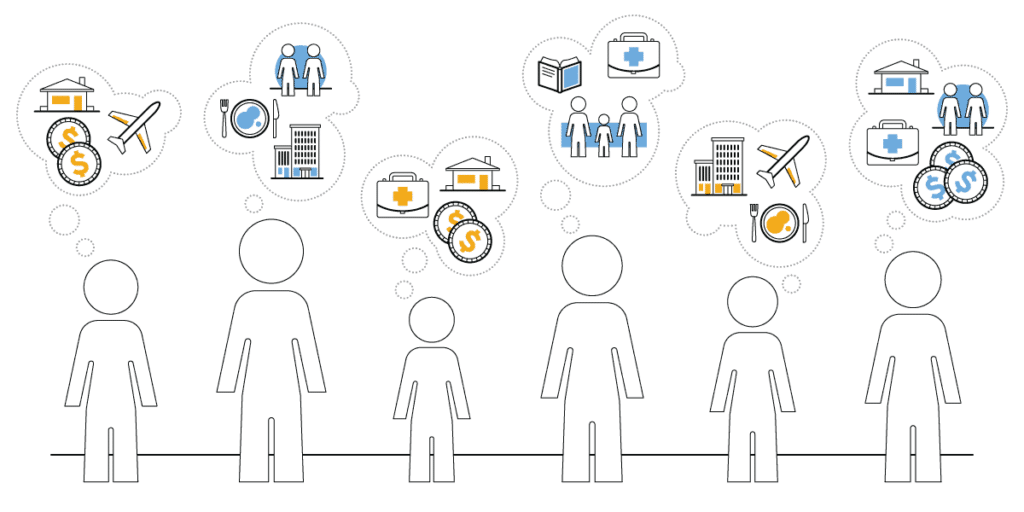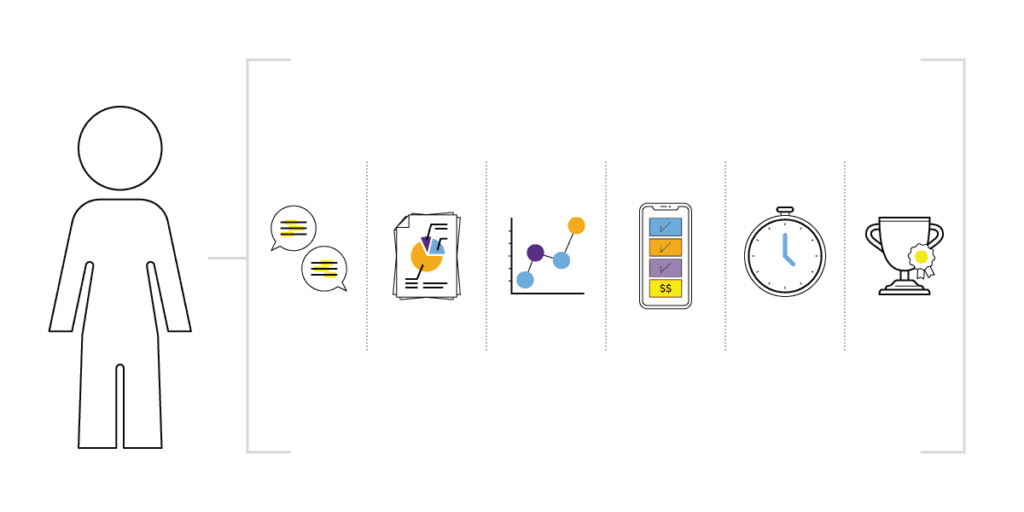Share:
Study after study shows that incentives, even tiny ones, can successfully motivate people and trigger behavior change.
Large companies are investing time and resources in administering incentive programs. According to the Kaiser Family Foundation’s 2018 Employer Health Benefits Survey, 61% of large companies ask their employees to complete a health assessment, and half of them offer an incentive to do so. Even more companies (81%) offer at least one wellness program—ranging from weight management to smoking cessation and beyond—and 35% of those offer an incentive to engage.
Some of these large companies are allocating a substantial amount of money to motivate their employees to complete a task. Typically, an employee is offered between $500-1,000 to follow through on an action—and some companies offer up to $2,000. Employers are making large investments, but might be falling into the trap of the short-lived, minimal-value incentive program.

The missed opportunity
In order to get the most value out of your incentive program, it’s important to go beyond the typical wellness approach. You want employees to find value in the incentives, rather than see another set of hoops to jump through—and as an employer, you want to see a lasting ROI, rather than a short-term one (or worse, none at all).
A typical incentive program experience might look something like this: The employer offers a reward to encourage employees to complete a task, like filling out a health assessment or engaging in a biometric screening. If the conditions are right, the employee completes the task, receives their incentive…and then moves on with their life. And employer ROI ends there.
If the employee doesn’t feel the activity benefits them personally, the reward loses its persuasive power. For those who do see value in the activity, we can only hope they learn something valuable or even develop a new healthy habit. But what if that engagement were longer-lasting, making the benefits more valuable and ensuring the ROI could keep accruing?
Make those incentives smarter
At Evive, we use data to power benefits engagement in many ways—and we apply that same expertise with Evive Rewards to enhance incentive programs.
First, we use HRAs or biometrics as “get-to-know-you” activities, allowing us to learn more about the individual. From there, we use data to customize a personalized incentive checklist for each person. As I’ve written before, “one-size-fits-all” doesn’t work for benefits engagement—and it won’t deliver lasting value from an incentive program, either. That’s why we prefer to use claims, health assessment responses, and other data to personalize incentive checklists to each individual. The framing has to be personally relevant—and from a universe of activities that are known to drive better outcomes.

In those checklists, we offer a wide-ranging suite of activities so each employee is more likely to find ones that are personally valuable to them. Activities cover the gamut from evidence-based screenings, to surveillance tests for those with chronic illnesses, to lifestyle-improvement activities that reduce health risks. For the same end goal, we may offer the individual several options, architecting their set of choices so that no matter what they pick, the end result is achieved.
For example, someone looking for a healthy lifestyle improvement might see the following in their customized checklist:
- A HealthQuest, which helps people examine and tweak habits on their own to achieve positive health and well-being outcomes.
- A Challenge, through which employees can compete among coworkers to complete health activities with social reinforcement along the way.
- A virtual health coaching program for those who’d like one-on-one help, providing that human connection without having to leave the comfort of home.
Depending on which activities the person engages with, the smart rewards adjust accordingly. In some cases, members can earn points for completing activities, which motivates them to stay engaged with their checklist even after completing the minimum requirements.
Let’s do more
These personalized activities—and the smart rewards tied to them—offer a longer-lasting, cultural impact: employees feel proud completing the checklists and employers feel good about helping their workforce get healthier. And with activities designed to invoke lasting behavior change, employers can see a longer-term impact on their bottom line, too.
Most benefits professionals would agree that incentives are a useful tool for motivating employees—but incentives should do more than just that. A data-driven program that offers smart rewards for completing a personalized checklist can sustain a positive culture, drive life-changing action, and bring continuing financial returns to the employer.
Want Evive Rewards for your workforce? Contact us.






